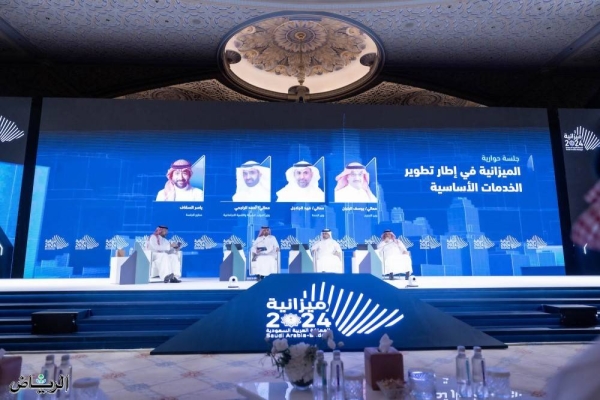
Minister of Human Resources and Social Development Ahmed Al-Rajhi emphasized that the Human Capability Development Program (HCDP) is a fundamental pillar of Saudi Arabia’s employment market.
“The program aims to find placement for 80 percent of Saudi graduates in jobs that fit their qualifications within 12 months of their graduation. The program seeks to change the citizen’s thinking pattern from looking for a job to thinking about entrepreneurship,” he said.
He made this statement while attending a brainstorming dialogue session on HCDP here on Monday. Minister of Education Hamad Al-Sheikh and Minister of Industry and Mineral Resources Ibrahim Al-Khorayef also participated in the session.
Al-Rajhi said that the ambitious program, launched by Crown Prince Muhammad Bin Salman, seeks to prepare young Saudi men and women to take up challenging careers in the current and future labor market. He also stressed the importance of providing job training for citizens including those who have long experience of up to 20 years.
Referring to the significance of HCDP, the minister noted that the most important evidence of this is that the Crown Prince Muhammad Bin Salman holds its presidency. He also drew attention to the Crown Prince’s interest and keenness on the Saudi citizen, and his consideration of citizen as the Kingdom’s most precious wealth.
“The program aims to increase the percentage of Saudization in highly skilled jobs by at least 40 percent by 2030, and targets 80 percent of graduates to find jobs that match their qualifications within 12 months of their graduation.
“The program also focuses on rehabilitating young Saudis at the school level itself and that prepares them to enter the labor market better than those who did not receive such a rehabilitation,” Al-Rajhi said, adding, that choosing the specialization appropriate to the capabilities of youth and the labor market is one of the objectives of the program.
Opening branches of foreign universities in pipeline — Al-Sheikh
While addressing the session, Minister of Education Hamad Al-Sheikh said that Saudi Arabia is working on developing rules and regulations to attract foreign universities to open their branches in the Kingdom.
Al-Sheikh unveiled plans to launch several educational initiatives, including the educational visa initiative and the international student exchange program initiative. He confirmed this while referring to the program’s contribution to making the Kingdom an attractive destination for students and researchers globally, and raising scientific and educational quality, research outputs and innovation.
“Also, in public education, we want to open diverse paths for different educational journeys for Saudis or expatriates,” he reiterated.
Al-Sheikh affirmed that the citizen is the main pillar among the three pillars of the program. “The first pillar is to develop a flexible and solid foundation for all human capacity development systems while the second pillar is aimed at preparing the citizen for a job market in which he will be competitive locally and globally,” he said, while noting that the third pillar is related to providing lifelong learning opportunities for every citizen.
Al-Sheikh said that the condition of passing five years of secondary education to be eligible for admission to universities will be abolished and the opportunity for citizens to pursue lifelong education will be opened,” he said. “There will be a change in some of the rules and regulations of universities to grant everyone the opportunity to enter universities and learn for life, and there will be programs in universities that allow rehabilitation or enhance qualification,” he said.
Al-Sheikh pointed out that the program focuses on the acceleration process for the school student in his educational journey, as he can shorten it from 12 years to less than that, as well as the case at the university level too.
“The pace of obtaining employment after graduation from the university will be accelerated. Attention on the citizen will start from the kindergarten stage itself, as it is an important pillar in securing a solid system for the Kingdom,” he said while noting that the target in the program is to increase the enrollment rate to 40 percent or more by 2025, and to 90 percent or more by 2030.
Attending the session, Minister of Industry and Mineral Resources Ibrahim Al-Khorayef affirmed that the future industrial sector is designed to be based on a strong industrial sector that adopts modern technologies. “The Kingdom will transform the nature of the industrial sector, which has been built over 50 years, into a new industrial sector that relies more on competencies and less on cheap labor. The outputs of HCDP will play a major role in this respect,” he said.
Alkhorayef stated that the large traditional industrial sector will continue to exist and needs competencies. There will be great opportunities for entrepreneurship in the industrial sector, given the nature of business in the future. The mining and industrial sectors are ready to open up great opportunities for young men and women in a way commensurate with their abilities, he added.












